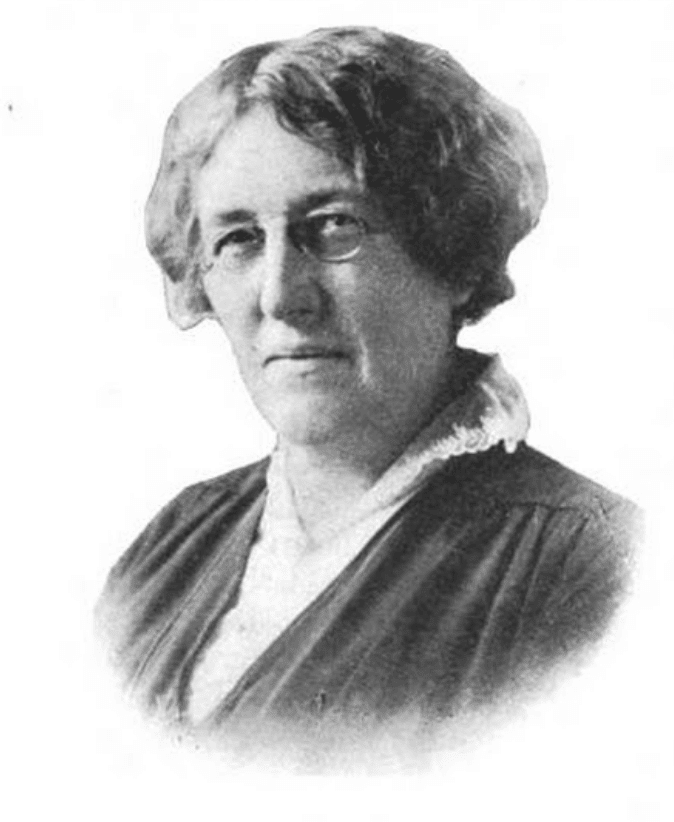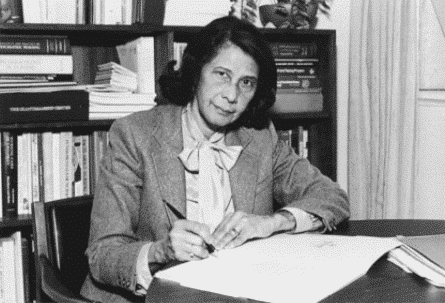
Alice Lakey, Public domain, via Wikimedia Commons
As a young woman in 1888, Alice Lakey seemed destined to become an opera singer until an illness forced her to give up her singing career. She was sick for most of her thirties. Alice’s mother had passed away when Alice was six. Then, just as Alice was regaining her health, her stepmother passed away as well. As a result, Alice became the primary caregiver for her ailing father.
Alice’s father was notoriously picky about food, which led Alice to become interested in food science and the emerging “pure food movement.” Eventually she became president of the village association of Cranford, New Jersey, and in that capacity in 1903 she invited Harvey Wiley, chief of the US Department of Agriculture Bureau of Chemistry, to speak about the problem of food safety.
At the time, food production was largely unregulated, and the use of toxic chemicals like formaldehyde as a food preservative was common. Alice and Bureau Chief Wiley worked together on a national effort for food safety. Through Alice’s efforts, she stirred up public interest in the passage of federal legislation for food protection. Part of this effort was an investigation of food production facilities.
In 1905, Alice and Wiley met with President Theodore Roosevelt to get his support for food safety legislation. He agreed, if Alice could generate popular support. Within a year, Alice’s organizing efforts generated one million letters of support. It didn’t take long after that for the Pure Food and Drug Act to be passed.
But for years after the passage of the Act, efforts were made to water it down. Alice continued to advocate for safe food even when the US Supreme Court later weakened the enforcement of the Act.
A special cause of Lakey’s was the enactment of legislation to ensure safe milk. Children were dying every day from contaminated milk. Lakey’s effort to create a milk commission in New York became the model for other states.
Lakey also worked on the standardization of weights and measures, so that consumers would be assured that the quantity they were buying was accurate. She also became an advocate for insurance integrity. Insurance policies at the time often had loopholes that were used to escape payment.
Today we may not think much about unsafe food or fraudulent insurance. We assume that the five-pound bag of potatoes we bought actually weighs five pounds. We assume that the life insurance policy we buy will actually provide support for our family. All of this is due to the advocacy of a pioneer for consumer protection. Alice Lakey is not a familiar name, but her efforts touch our lives every day.
Just imagine the special character and passion that pioneers of progress must have. Just imagine the determination that pioneers for progress must have to continue to fight for the causes they believe in. Just imagine reflecting back on one’s achievement, not out of special recognition, but for the impact one’s life made on society.
* * *
“It’s all very well to run around saying regulation is bad, get the government off our backs, etc. Of course, our lives are regulated. When you come to a stop sign, you stop; if you want to go fishing, you get a license; if you want to shoot ducks, you can shoot only three ducks. The alternative is dead bodies at the intersection, no fish, and no ducks”—Molly Ivins, political commentator and humorist
This is part of our “Just Imagine” series of occasional posts, inviting you to join us in imagining positive possibilities for a citizen-centered democracy.


